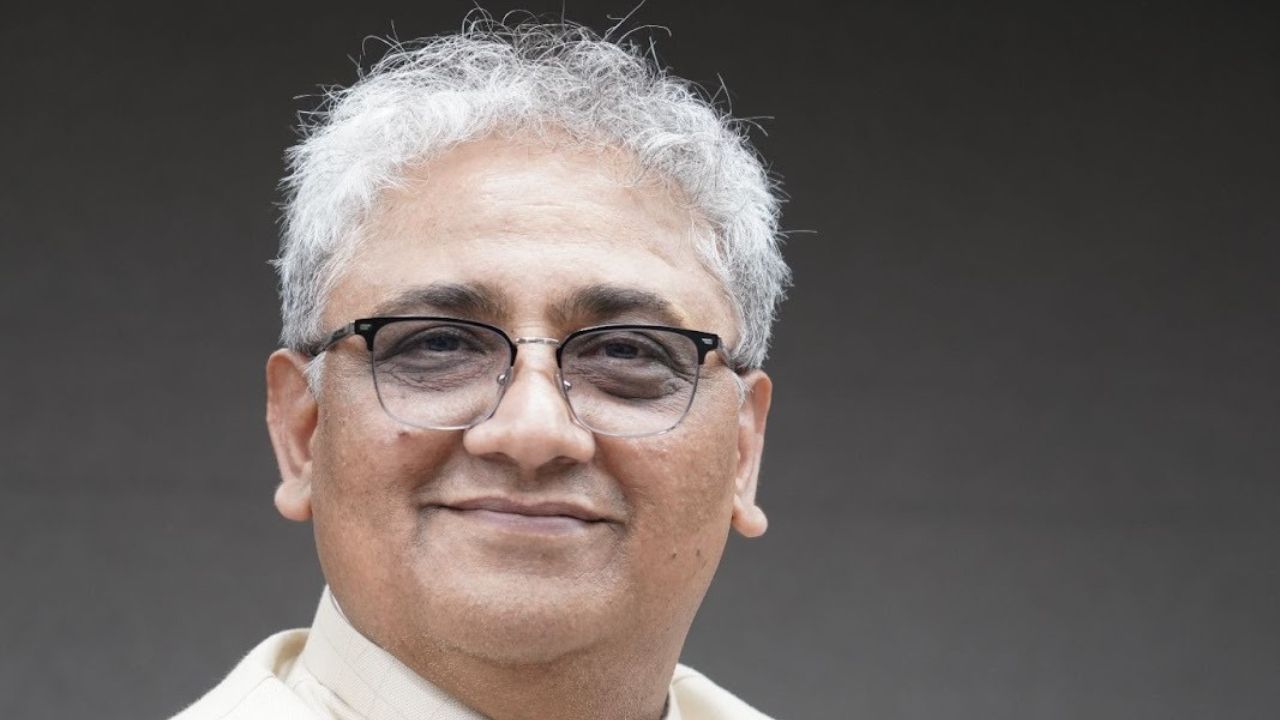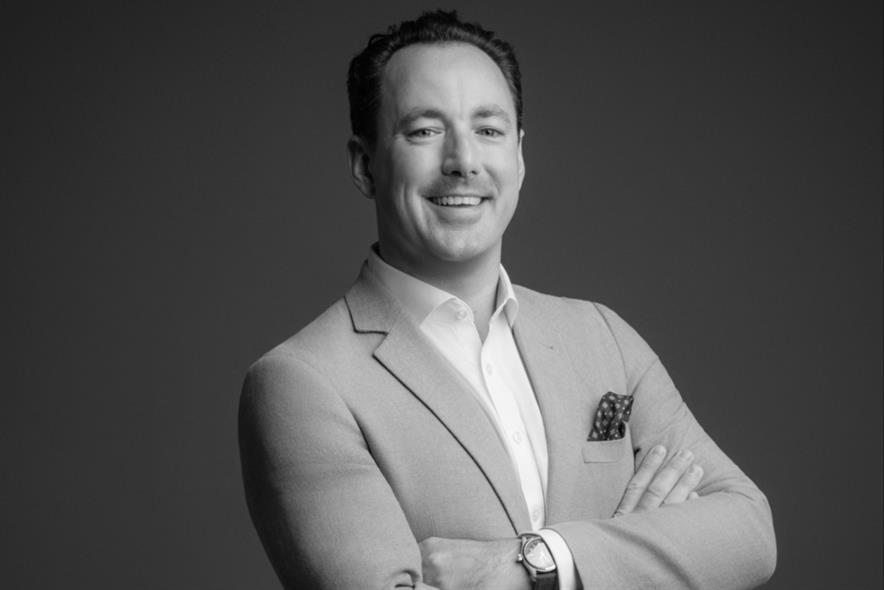A staunch tech evangelist Marcel’s managing director, Léoda Esteve is quick to point out that new-age tech like artificial intelligence (AI) will only enhance creativity and not threaten it. Her stance was vindicated when the agency, part of Publicis Groupe, won the Sport Grand Prix at Cannes for its ‘WoMen’s Football’ ad. This campaign for Orange relied on traditional craft and special effects rather than leaning on AI.
While talking to Campaign at Cannes, Esteve revealed that her team did consider using AI for the ad, but found that VFX worked better when it came to altering the appearance of female players in the first part of the compilation. Moreover, it aptly underpinned the message that the telecommunications company wanted to spread—'At Orange, backing Les Bleus means backing Les Bleues too’—showing its full support for all players of French football.
As tech zooms ahead, ad agencies face the big challenge of weaving AI into their client’s campaigns. Esteve believes the trick lies in balancing cutting-edge coolness with what consumers will actually dig. Teams need to get smart with AI, aiming for creativity and keeping it real. This is where her tech evangelism is a merit, especially for a digital-first agency like Marcel.
Last October, the French-based company elevated Esteve as managing director, alongside Blandine Mercier and Benjamin Taïeb. Before that, she served as its co-director of strategic planning and head of new business for three years, where she contributed to the acquisition of significant budgets, including brands like Kiehl’s, Lidl, Betclic, Coach, and Orangina.
A graduate of Celsa in Paris, Esteve joined Marcel in 2012 and moved to Grey London in 2016 before returning to the French agency two years later. She has brought a dash of sassiness to the creative agency in her new role. For starters, she refuses to take ‘No’ for an answer, nor does she have a blunted been-there-done-that air. Instead, she is raring to push the envelope when it comes to creativity, talent, technology, processes and business models.
In a free-wheeling chat with Campaign, she discusses her plans for Marcel, technology’s role in creativity’s sandbox and much more. Here are edited excerpts:
What changes have you brought since taking charge as Marcel’s MD?
Though I've been in this particular role for around nine months, I have been at Marcel much longer; having started as an intern in 2012 (with a two-year hiatus to work at Grey in London). Since then, I've held different positions—from senior planner to head of planning and head of new business—before being appointed as managing director in charge of strategic planning and development.
I have known the executive committee team for around 10 years, I’ve always worked with them and I feel I have a strong voice at the table. The plan for me now is to ensure that brands and the creative industry know why we exist as an agency and the kind of work we do.
As head of development, a main part of my job is to meet new clients and find out what their expectations are of Marcel and see how we can work together. They can state their issues and we will find a creative solution for it. We are ideas-first problem-solver entity, because the bigger the problem, the more creative one has to be.
What sets Marcel apart from other agencies?
Marcel has been well-recognised through various global awards and we've been doing a lot of direct activations, digital, out-of-the-box, non-traditional advertising. Starting as a digital agency, we are now a global 360 agency, which sets us apart from other traditional agencies that started traditional and have been trying to get into digital.
Marcel has a challenger or hacking spirit, which comes from our digital lineage, and was ingrained in our culture from day one. The main thing right now is to make people know that we are positioned as an agency that makes things that changes things. This is our motto, which is also written on our walls. We want everyone to know that Marcel is here to build brands that are changing things and that creativity is our main weapon to achieve that.
Our second weapon is our awesome talents, because they are the ones who are going to drive change and fuel creativity. They will ensure your brand is aligned with the world.
We also want to scale from being a strong branch agency to a stronger international one. Many don't know that Marcel has many big international clients, like Coach, Samsung, Lidl, DS Automobiles.
And does Marcel have any clients in India?
Not yet, but hopefully we will soon, because we have the power of Publicis group when it comes to network countries and scale. This helps us tailor the communication based on the region we are working in. For instance, we work with Coach in the US and if we create communication for China, it will be very specific to that geography with insightful feedback from the country.
I want to ensure that we have business internationally; ranging from big brands to smaller ones that want to make an impact.

Publicis bought Marcel to India in 2017, but the needle hasn’t moved a lot for the company since then. How do you plan to change that?
We did have a small office in India in 2017, but since then it has mainly been our Paris office. To revitalise our Indian operations, we need to find a client willing to work with us. We are not the kind of agency that opens a lot of offices if we do not have clients. Our goal is always to find the client that really wants to work with us, or a brand that we want to work with.
We can solve so many issues in India, like those related to gender, inclusivity and social causes. To do that, we need some people there and we don’t have anyone right now. So, the goal is to find a brand or projects, then use the best people from Publicis Groupe to understand what is going on in the market. But right now, there is no directive planned for the country.
Publicis recently invested $300 million to scale its tech capabilities, especially in AI; something that other agencies are doing. Do you agree with the ongoing concern that tech will eat creativity for breakfast?
It's not a competition between technology and creativity, but more about how tech can be used as a tool to enhance creativity. It is also about learning how to manage data so that it is more effective while doing targeted advertising.
I don’t think some robots are trying to steal our job. But anyone who can use the technology better will prevail. We need to ensure that our teams know how to leverage these tech tools and in addition to investing in AI , we are also training everyone at Marcel on these technologies.
All planners at Marcel use ChatGPT and Gemini AI to read and absorb enormous quantities of information and put it into strategic knowledge.
How exactly has Marcel leveraged AI, ML or even business intelligence to enhance business creativity? Also, how are you using it to optimise, accelerate and simplify production, which is often a big hurdle in the entire process?
The first question is really interesting, because sometimes this industry works on hype. So, when AI took off, everyone wanted to have an idea around it. We really wanted to have meaningful ideas that converge with business or brand purpose, rather than just work with AI. The way we work is that we examine the brand problem, then come up with the best idea to solve it, and see how AI can help in executing it.
For instance, one of our clients, Lidl, is amongst the biggest retailers with a very specific brand identity that has bold blue, yellow, and red colours. This iconic brand has good attributes like being accessible and price-driven and has gained brand love and iconicity, which is very rare. They are known to launch specific products like sneakers for example, but totally branded with the iconic colours of Lidl. We built an AI within the agency called Lidlize where anyone can transform any object into a Lidl object. We launched it over a month ago, and it has created over 1 million Lidl items.
This is personalisation at its best as it helps the brand develop unique and creative products in small quantities. It is also an interesting example of creative and business driven commerce.
We know the brand assets, the target base, how to build hype around a product and leverage brand love. Combine that with good creative thinking and a new tech tool that didn't exist before, it helps us having unconventional ideas.
So, ad agencies don’t need to fear AI?
Our job as an agency is to know when and where to use the right tools to help our brand partners grow and have an impact. It is exciting and I don’t think there is a reason to be scared, we need to find ways to embrace it.
We felt the same way where disruptions like digital and social media came in; but after the initial hesitation, most figured what we can do with these new tools, and it never stopped us from being super creative. No tech tools will replace the creative leap that creative talents are doing.




